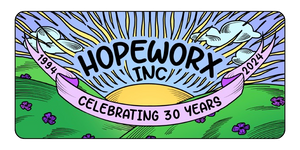A Virtual Summit – Planning Beyond the Crisis
The Corporation for Supportive Housing (CSH) Virtual Summit was held from June 23-26. The Summit was based in California. My co-worker, Vernon Steed, myself and other people from Montgomery County attended the Summit.
The training was very good. They encouraged us to advocate for continued support for people experiencing homelessness and to advocate for the advocates. They emphasized that lived experience is what really works when helping others – something we already know in Montgomery County. We do this with advocates and peer specialists.
Speakers said we must invest in what people want as well as what they need. And we must continue to advocate for people to listen to people with lived experience because they’re the experts.
On Day 1, the title of the training was “Systems in Crisis - Transferring to a More Equitable Sustainable System.” Peggy Bailey said that people who need help the most don’t seem to be getting it now. The focus seems to be on people who lost employment and not on homelessness – there is no extra help for people who are homeless. She said people are being forgotten.
Rodney Harrell from AARP said some issues were put on the back burner and Christine James Brown from the children’s system said people of color are disproportionately impacted by the virus. The fact that the general public was surprised about this statistic shows how much more attention this issue needs.
Judge Steve Leifman, of Florida, said he was surprised how well court proceedings went when they viewed clients from their homes. They saw a whole different side of people when they were at home instead of in the court room. Because of the pandemic, they were letting non-violent offenders out of jail to try to stop the spread of the virus. The Judge said the system had been over-incarcerating individuals and it wouldn’t be good to go back to that after the pandemic is over.
Day 2 was “Speaking from Experience: Amplifying Voices with Lived Experience.” Ann English, CHS Senior Program Manager for Advocates Against Domestic Violence, said they hire people with lived experience and they have the most to lose and gain by policy. They have the knowledge and expertise to know the needs and the issues around which policy is made.
Day 3 was “Housing and Public Health – COVID-19 and Beyond.” They presented an Introduction to Public Health and explained how it works. The speaker stressed the importance of mobilizing community partnerships and the need to inform, educate and empower. Many people who are experiencing homelessness are at greater risk for COVID-19. They have chronic or serious health conditions so they are at higher risk of contracting the virus and also of having complications.
Housing initiatives need to be expedited. For example, a program called Project Room Key in California uses motels, motels and trailers to provide living space. With $150 million they were able to get 15,727 rooms for people who had been living on the street. The goal is to provide ongoing housing and support after the crisis.
Day 4 was “Assessing the Realities of the Crisis”. This training focused on the health of the frontline staff and housing supports. At St. Joseph Center in California, there were no layoffs. Some people shined in a way they hadn’t seen before. To support the staff, there was a focus on physical, emotional and financial wellbeing.
